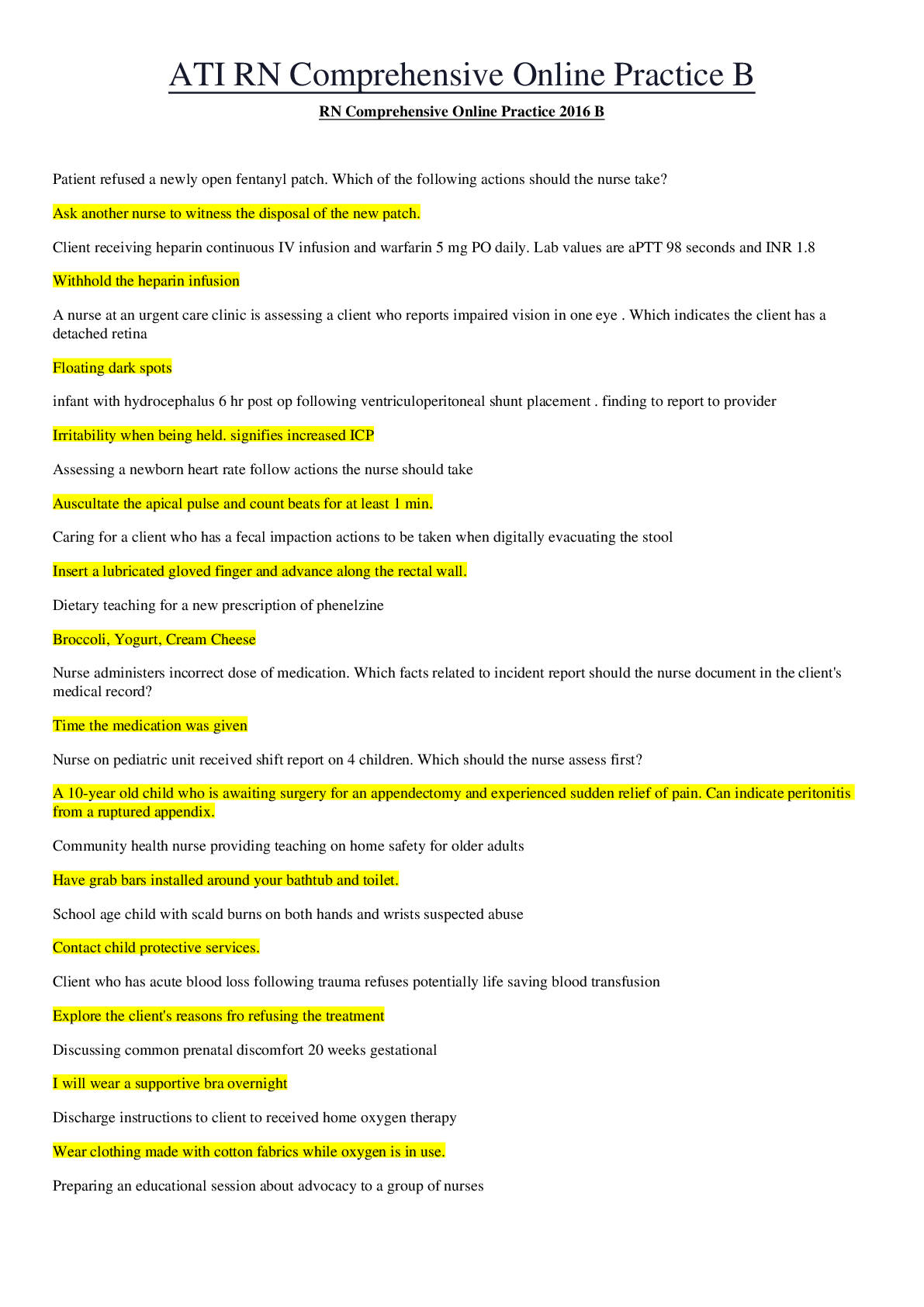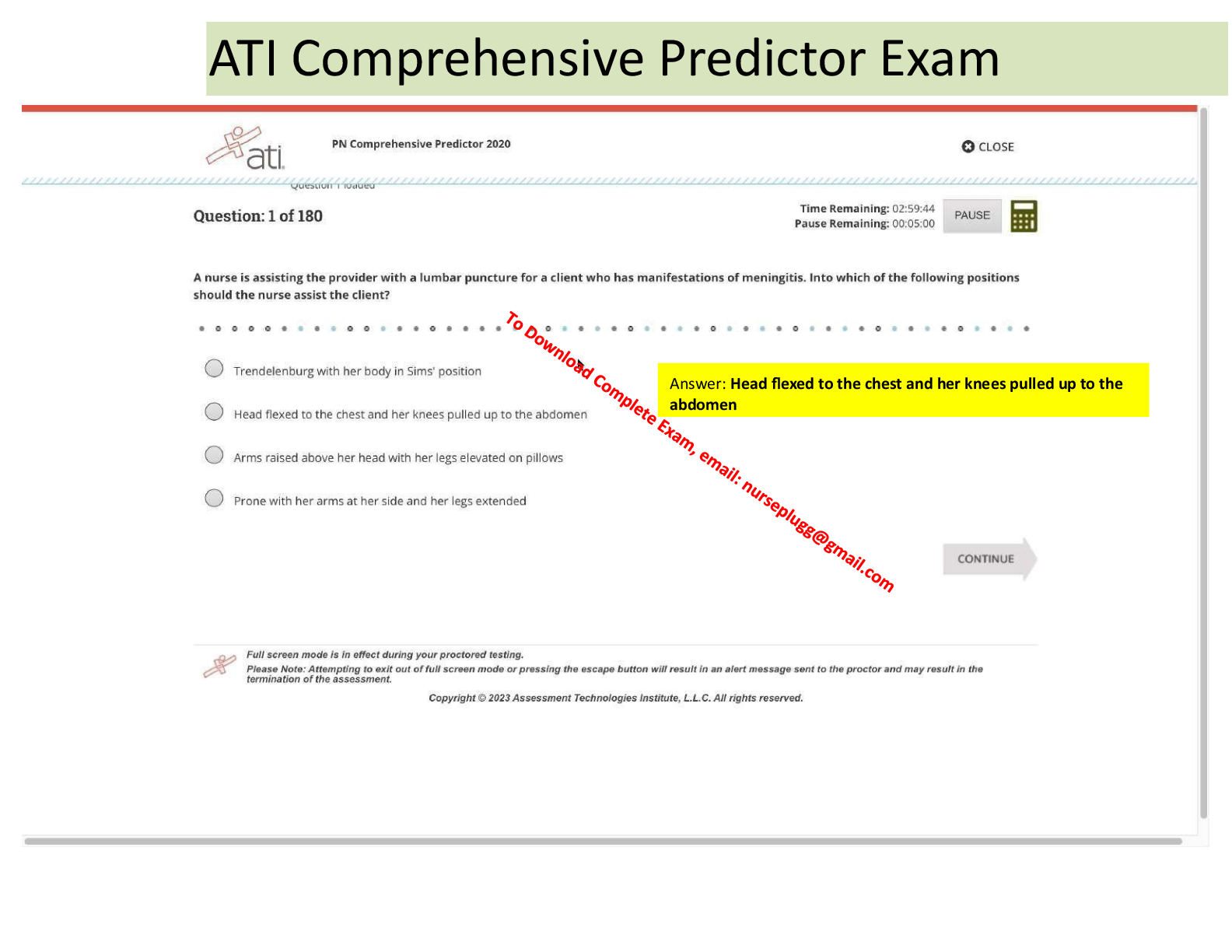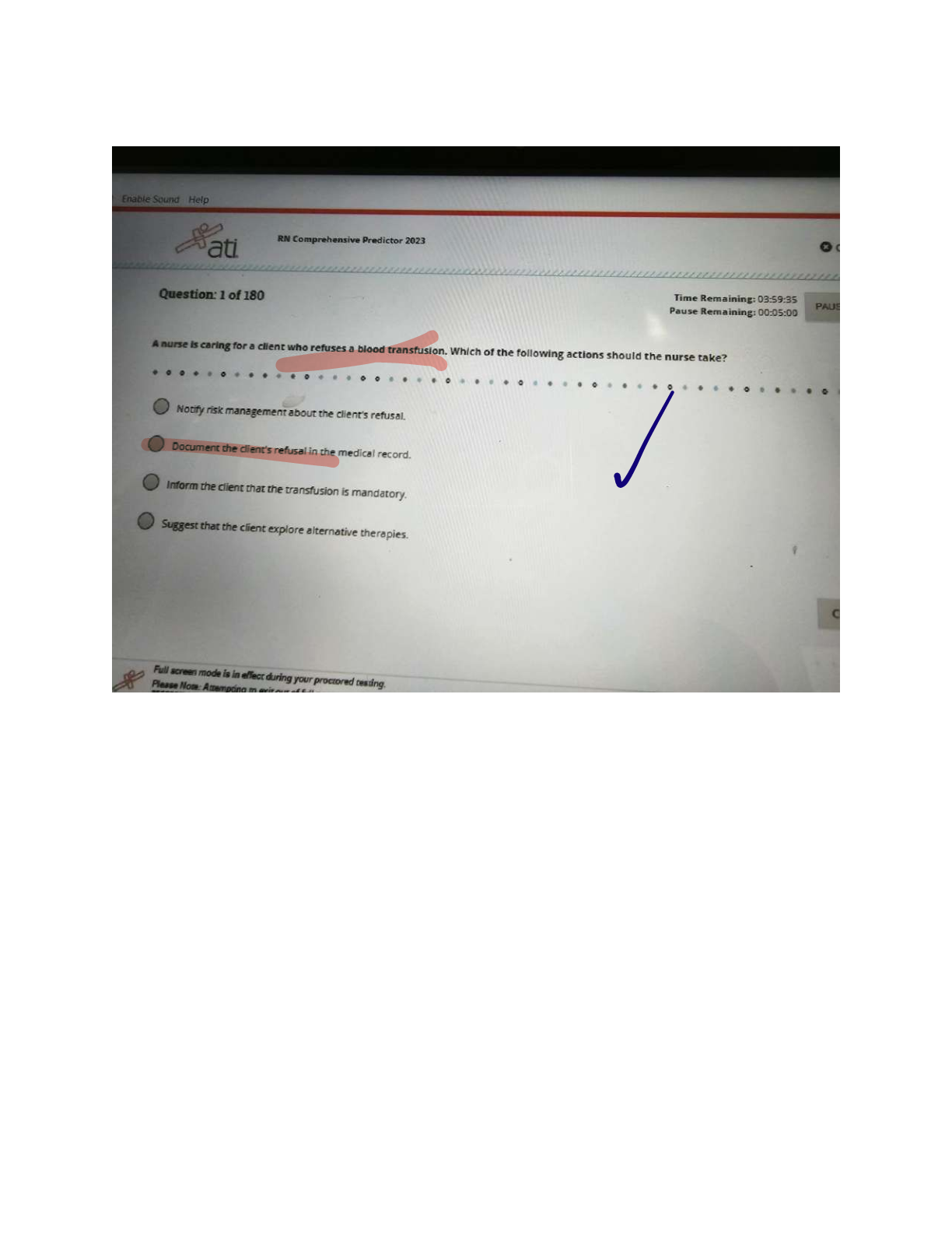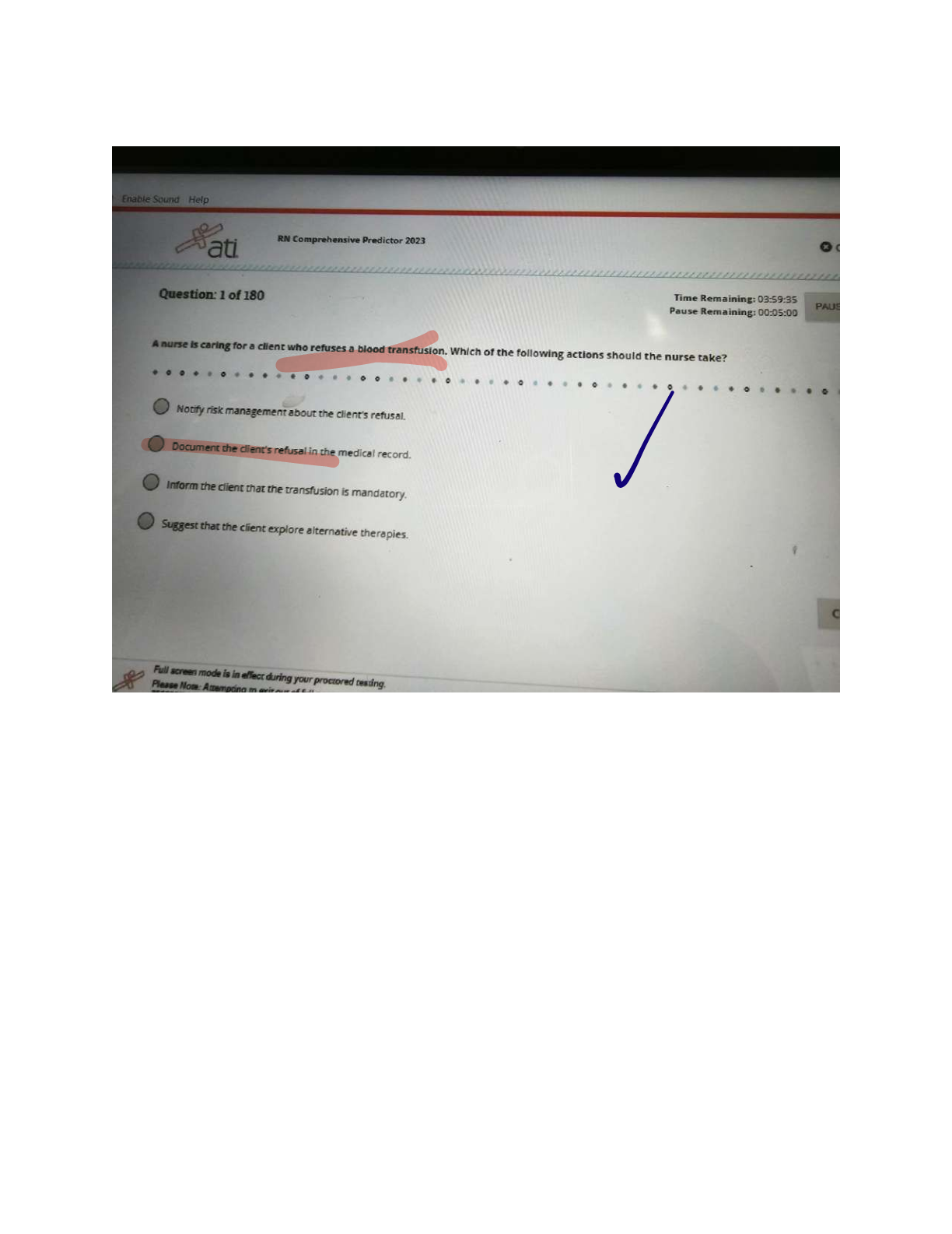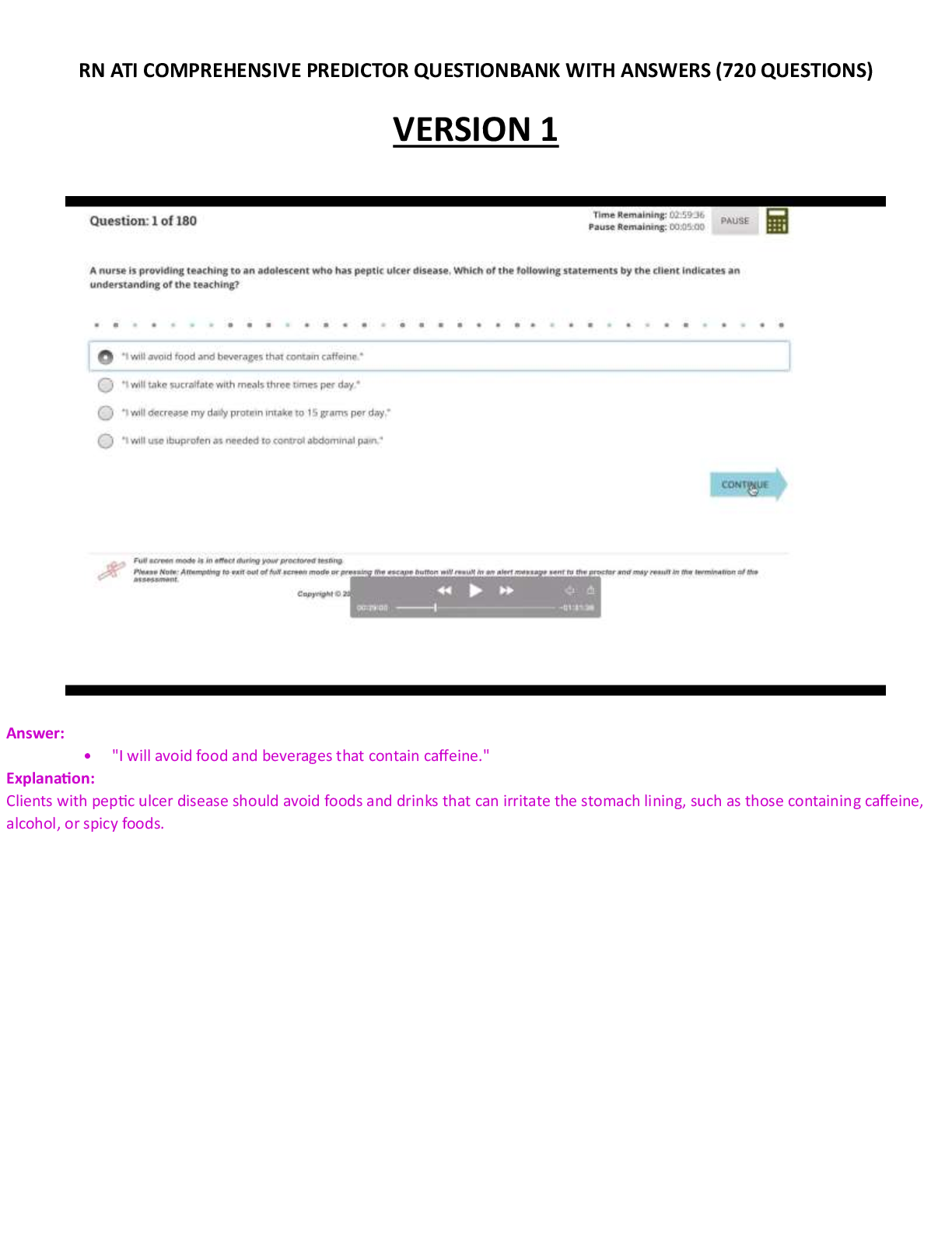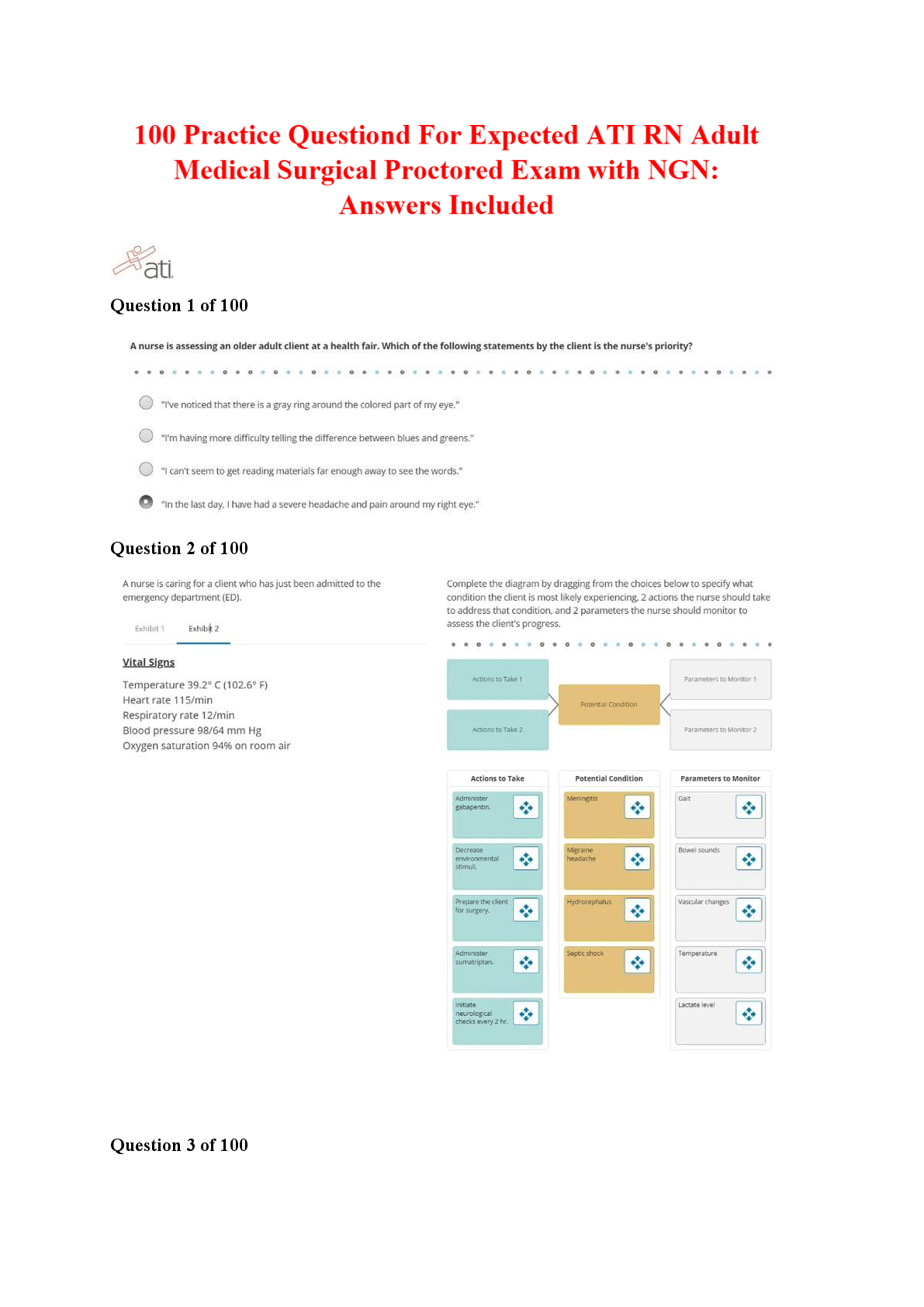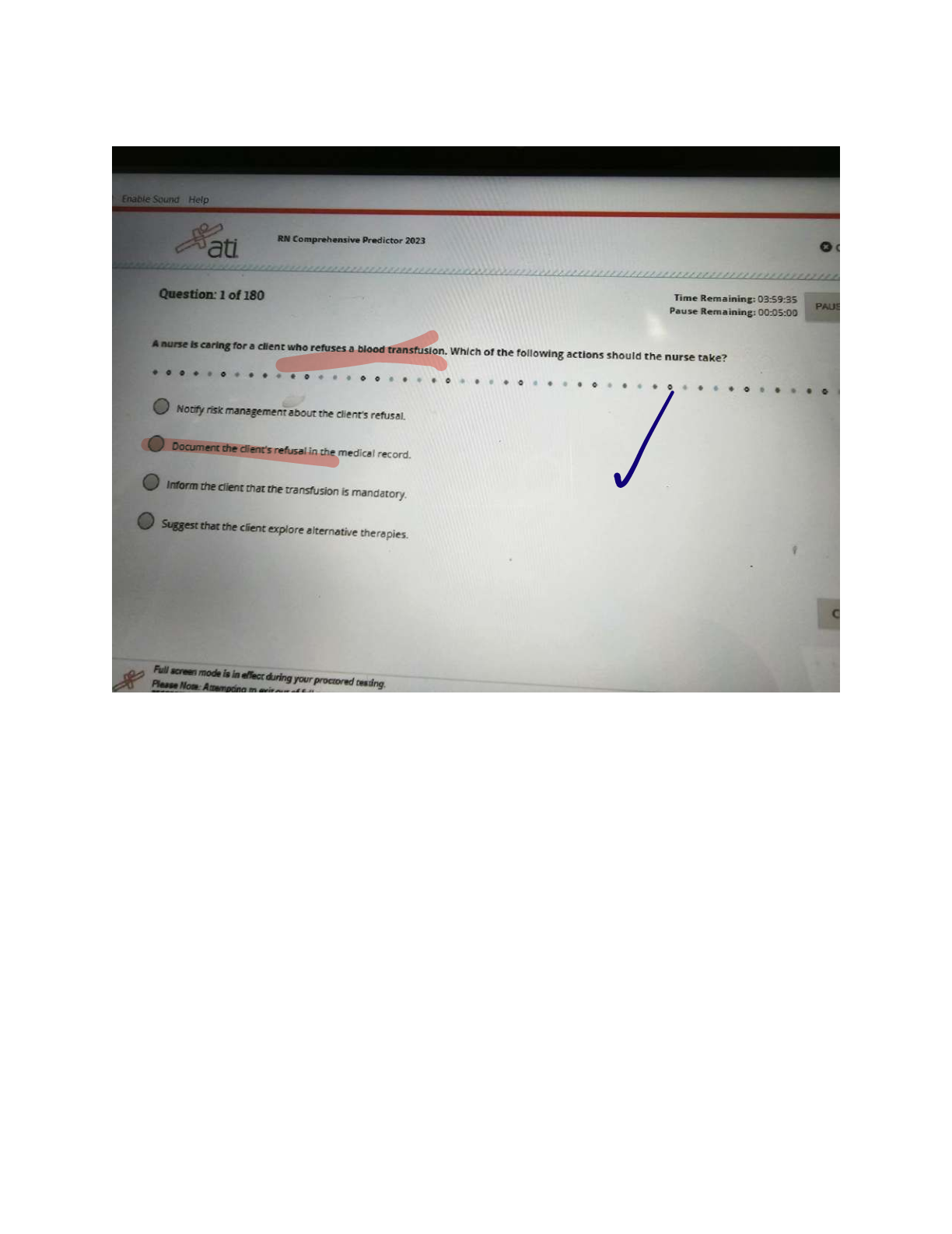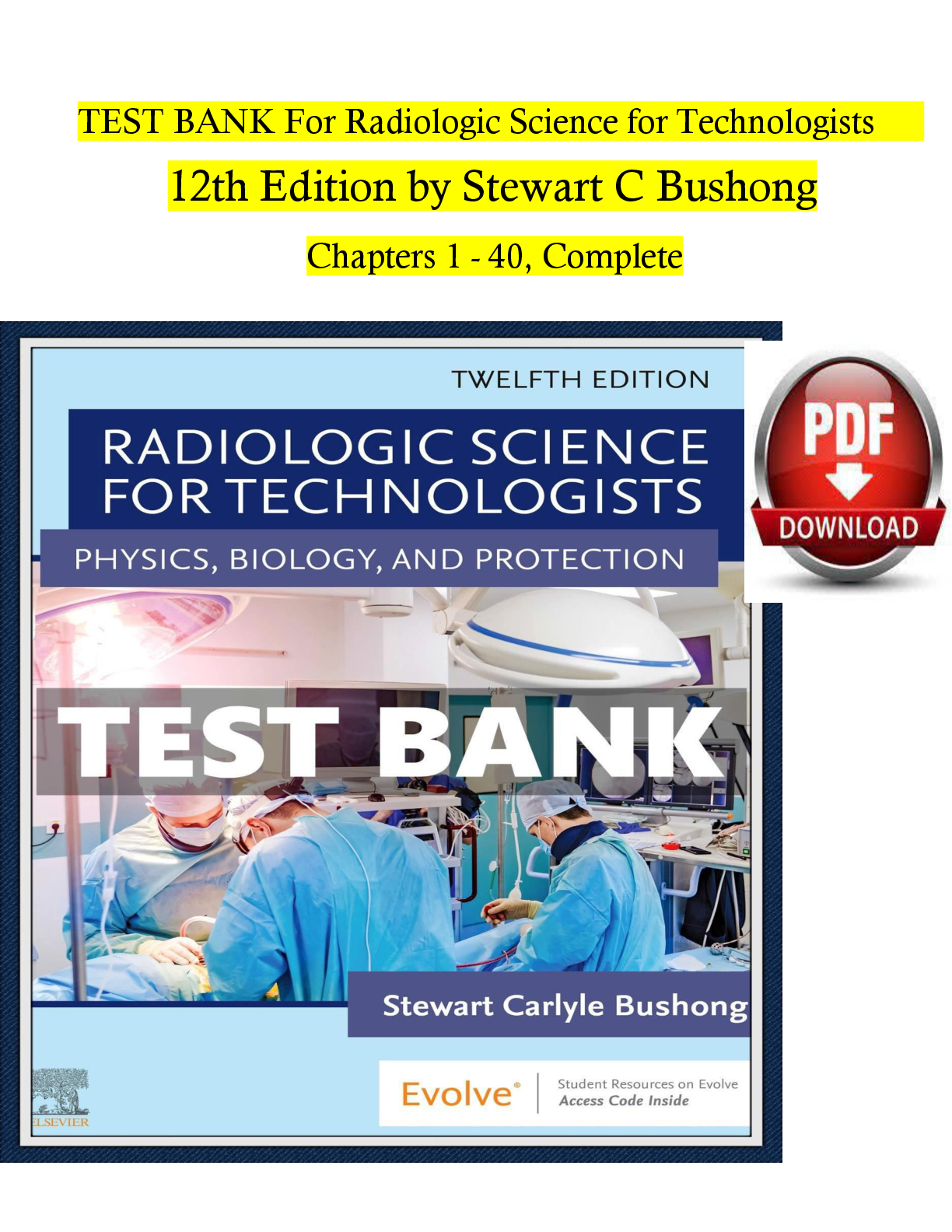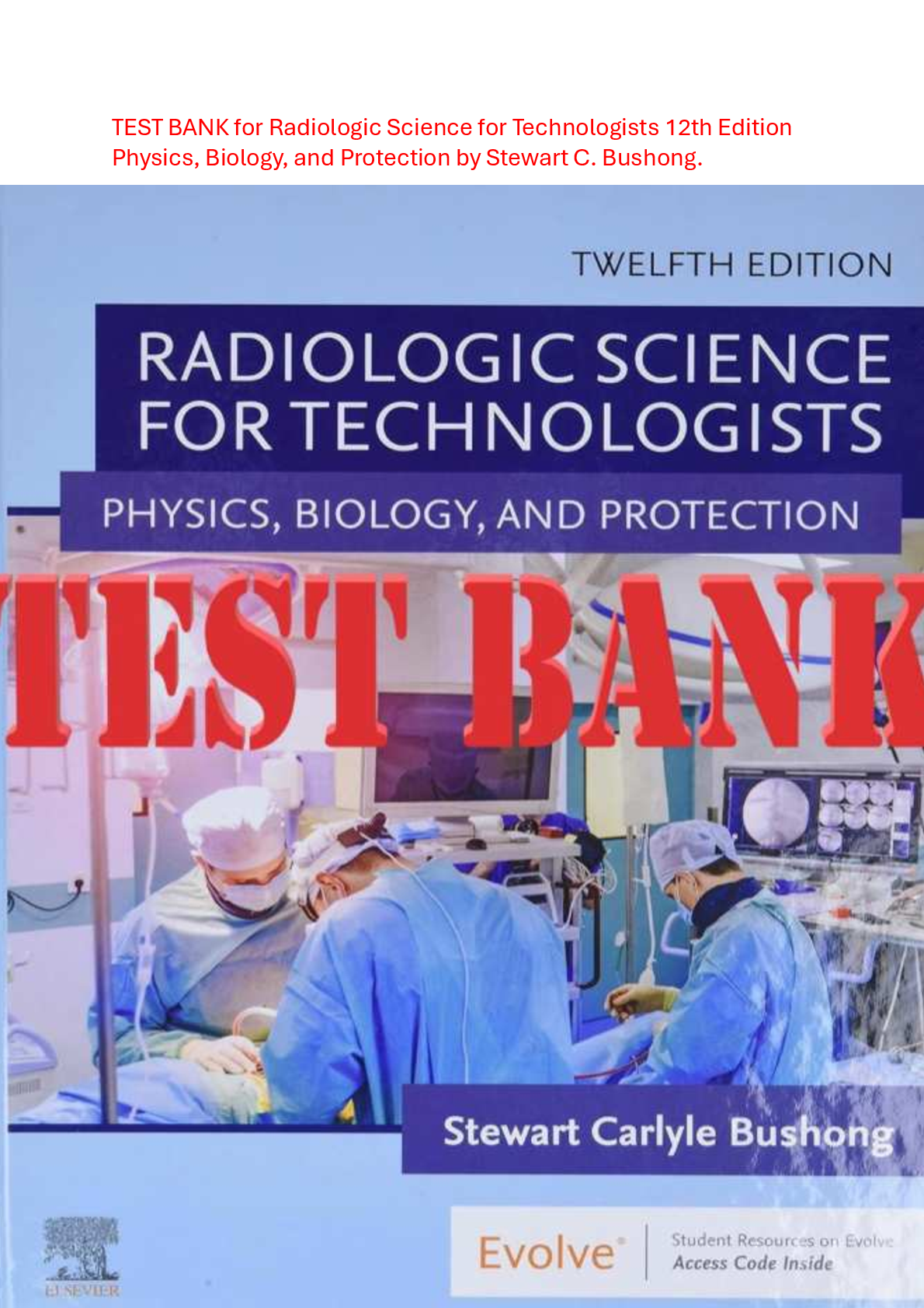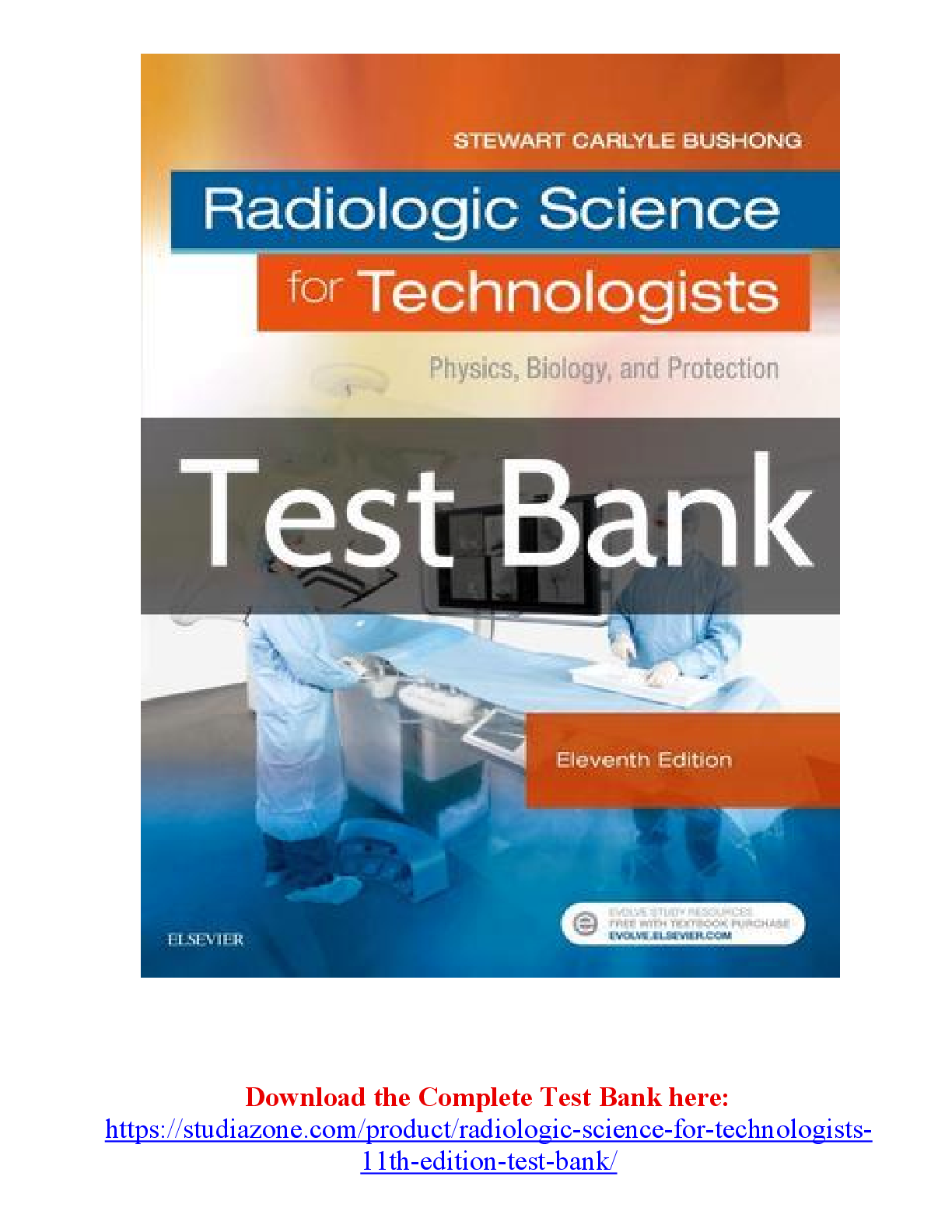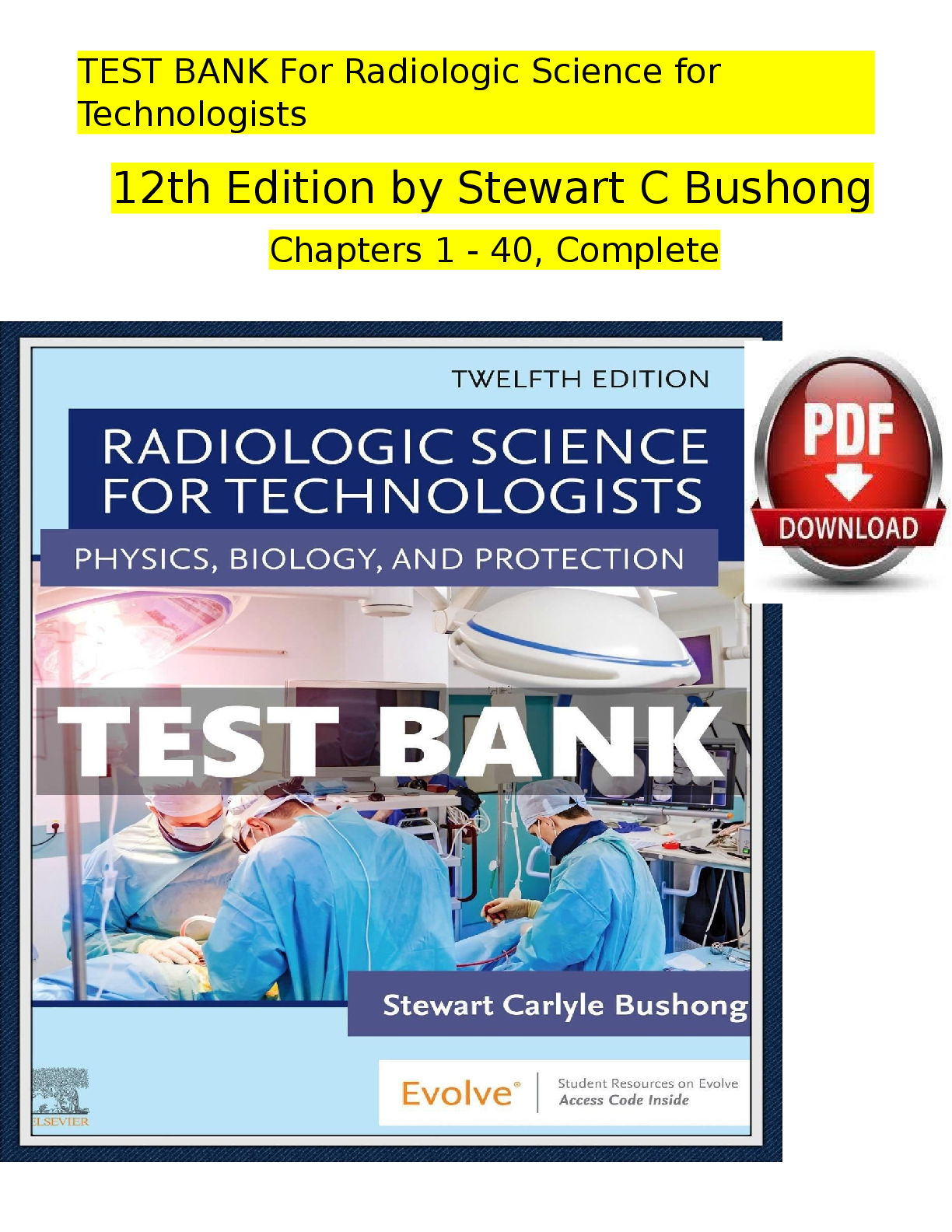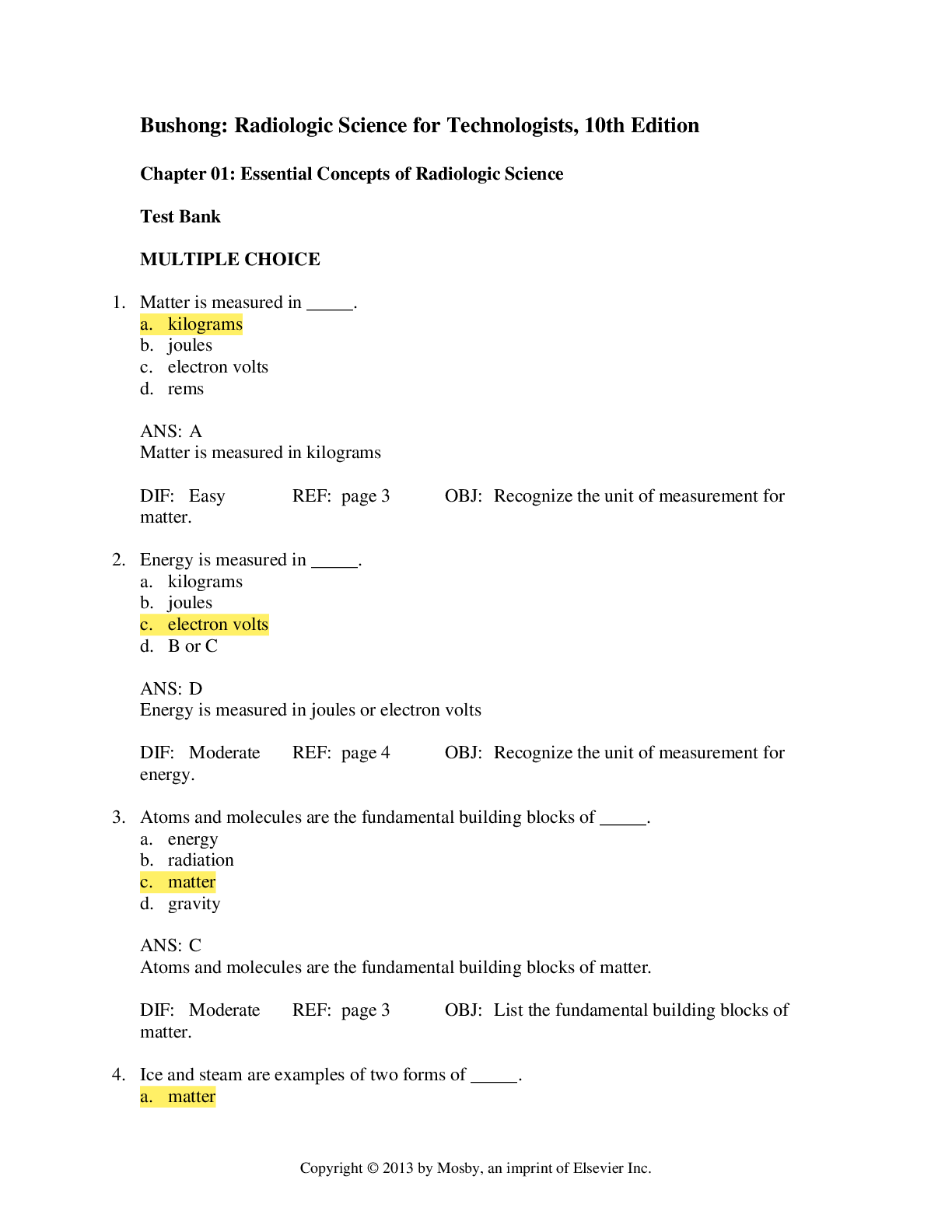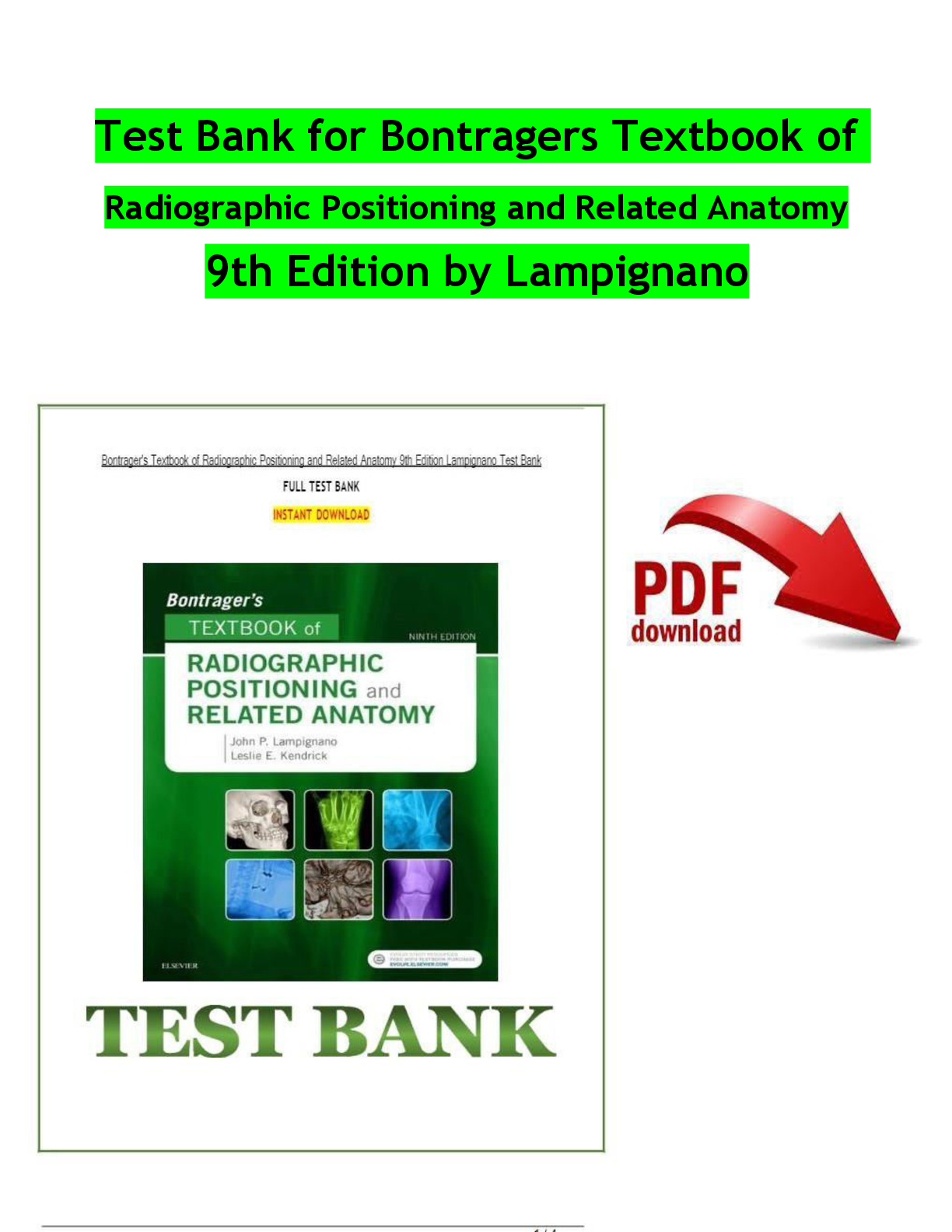PATH 370 Pathophysiology Study Guide Chapter 41 – West Coast University
Chapter 41
1. The underlying pathogenic mechanism for both type 1 and type 2 diabetes is
a. pancreatic β-cell destruction.
b. lack of insuli
...
PATH 370 Pathophysiology Study Guide Chapter 41 – West Coast University
Chapter 41
1. The underlying pathogenic mechanism for both type 1 and type 2 diabetes is
a. pancreatic β-cell destruction.
b. lack of insulin receptors.
c. lack of exercise and chronic overeating.
d. impaired glucose transport into cells.
2. nsulin binding to its receptor on target cells results in
a. increased active transport of glucose into the cell.
b. glycogen breakdown within target cells.
c. increased facilitated diffusion of glucose into cells.
d. gluconeogenesis.
3. A clinical finding consistent with a hypoglycemic reaction is
a. acetone breath.
b. warm, dry skin.
c. trembling.
d. hyperventilation.
4. Which of the following clinical findings usually is not associated with type 1 diabetes mellitus?
a. Polyuria
b. Polydipsia
c. Polyphagia
d. Obesity
5. Type 2 diabetes mellitus is often associated with
a. nonketotic hyperosmolality.
b. childhood.
c. autoimmune destruction of the pancreas.
d. ketoacidosis.
6. Which of the following indicators is most helpful in evaluating long-term blood glucose management in patients with diabetes mellitus?
a. Blood glucose levels
b. Urine glucose levels
c. Glycosylated hemoglobin levels (HbA1c)
d. Clinical manifestations of hyperglycemia
7. Diabetic neuropathy is thought to result from
a. elevated neuronal osmolality.
b. elevated HbA1c.
c. deficient neuronal insulin receptors.
d. neuronal demyelination.
8. Which of the following therapies would not be appropriate for a patient with type 1 diabetes mellitus?
a. High-carbohydrate, low-fat diet
b. Daily exercise
c. Insulin
d. Oral hypoglycemic agents
9. A type of insulin that would be most appropriate for acute management of hyperglycemia is
a. NPH.
b. semilente.
c. regular.
d. ultralente.
10. Which of the following hormones will not increase serum glucose level?
a. Vasopressin
b. Glucagon
c. Growth hormone
d. Catecholamine
[Show More]
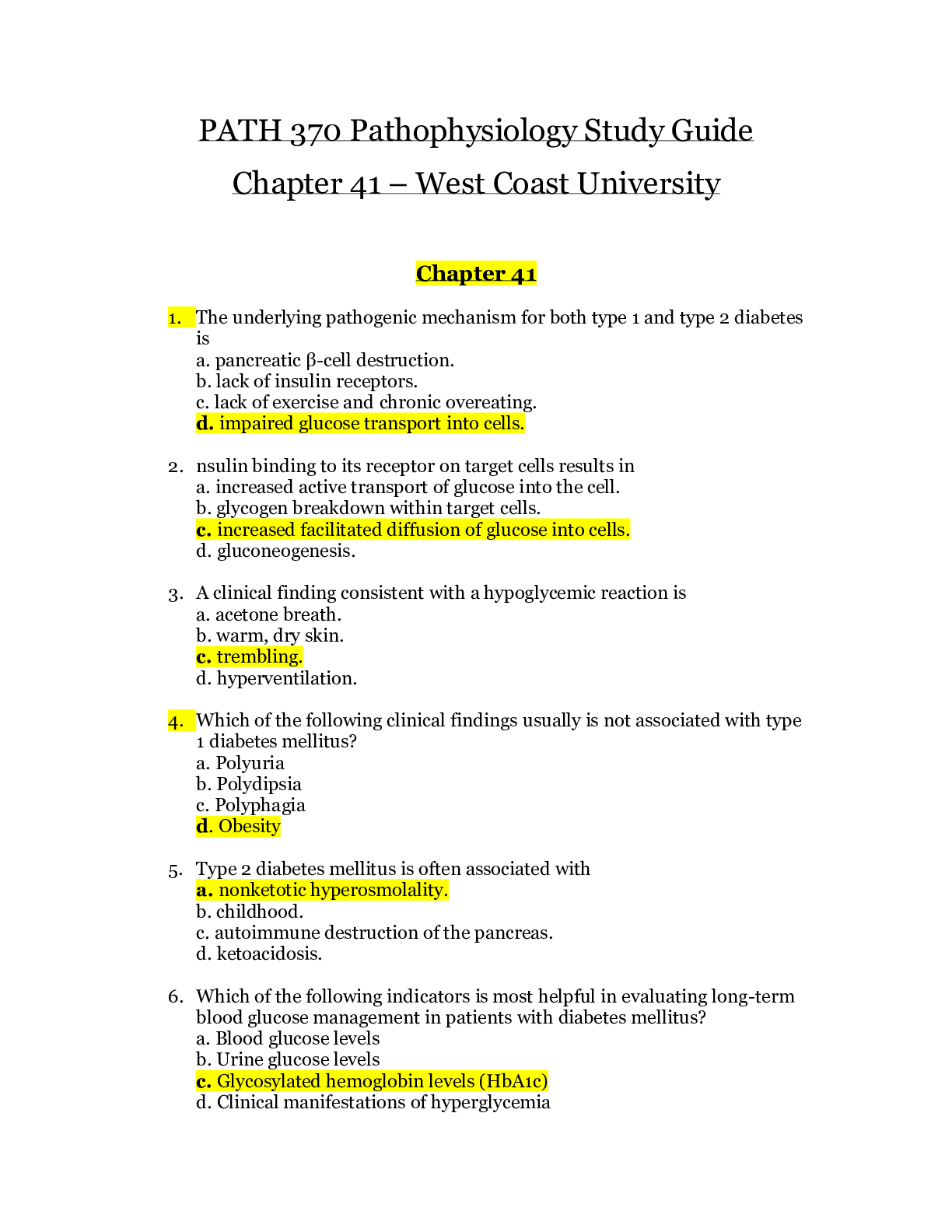






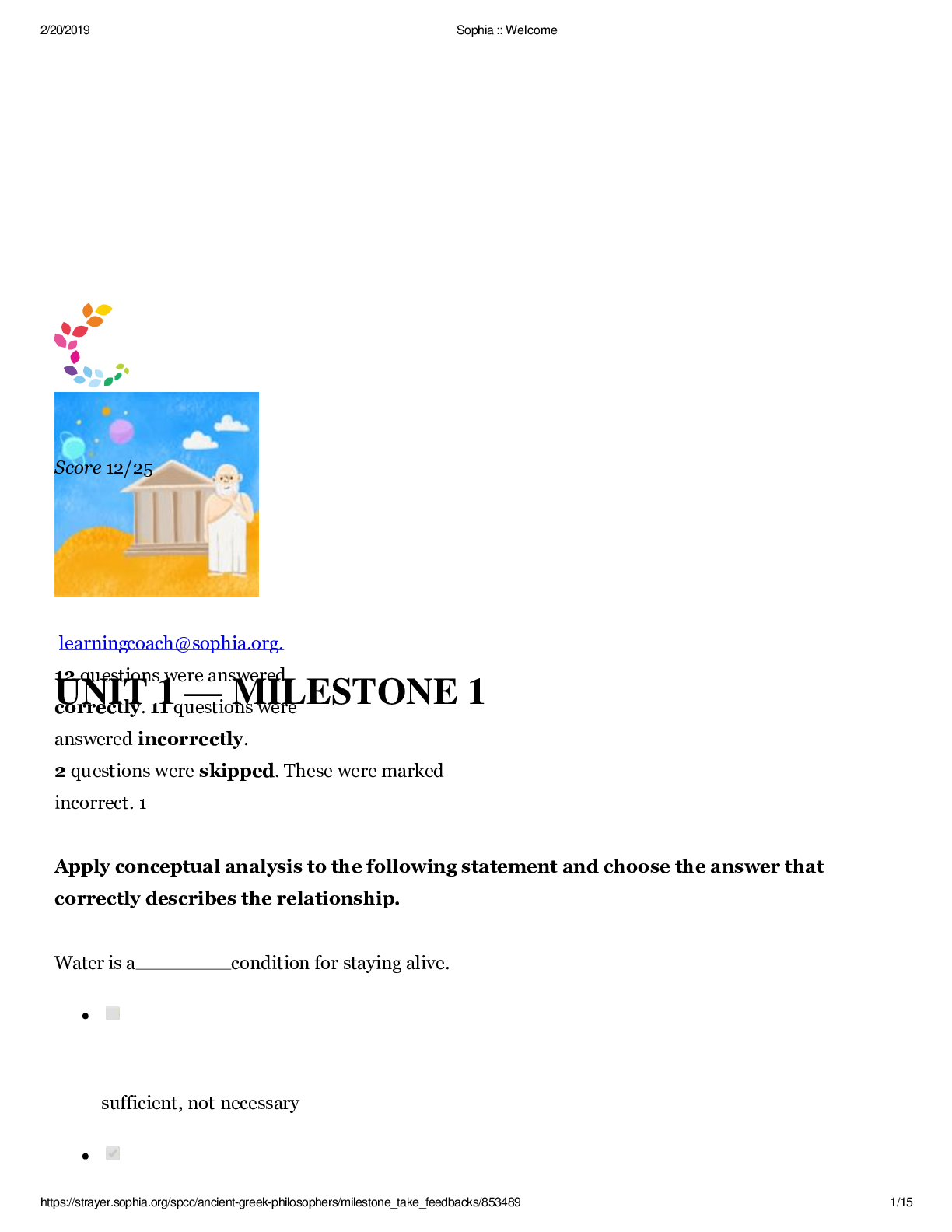


 – University of the People.png)
